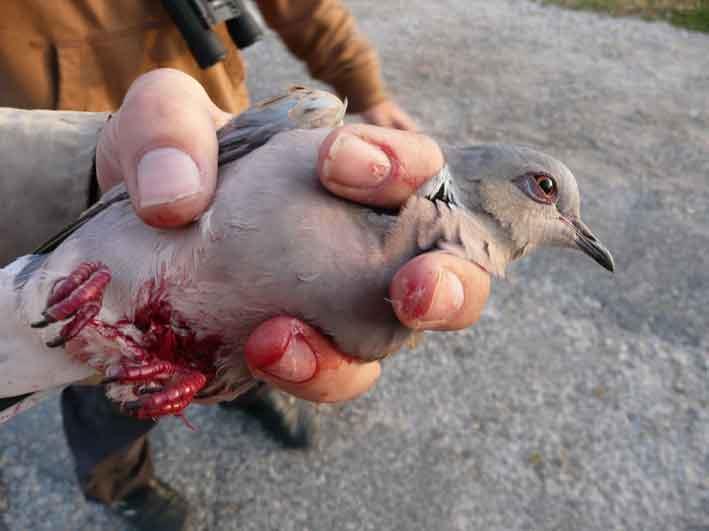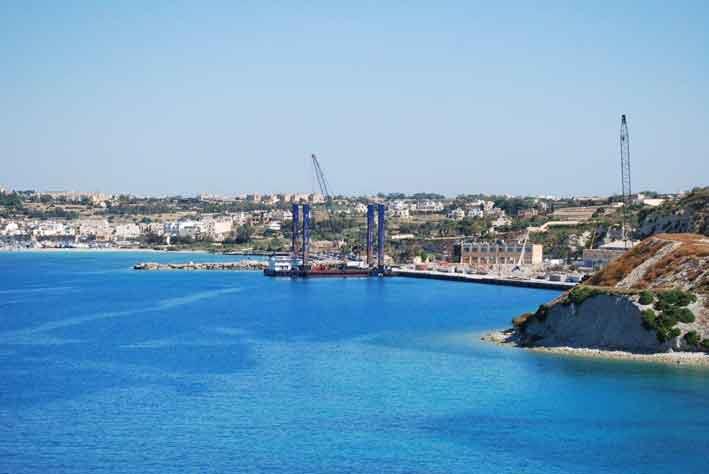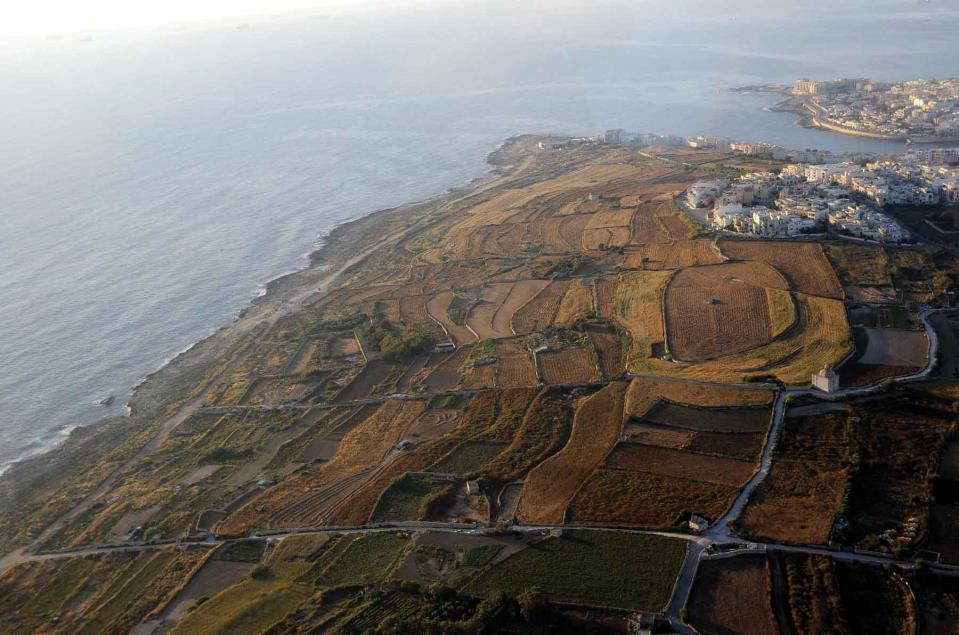What is the EC’s opinion on the continued hunting of the turtle-dove in both autumn and, more importantly, in spring in the light of the fact that the species has been placed on the Red List of threatened birds in Europe?
These latest reports clearly change the situation – not only is the turtle-dove now considered a ‘vulnerable' species’, but its short and long-term prospects indicate decline.
The Maltese authorities should now draw on the implications of this data, on the principles defined by the Court and, in particular, on the principle of precaution when contemplating further hunting derogations.
National legislation on spring hunting already defines specific requirements in such cases and, in particular, the obligation to consider the conservation status of the species concerned. In any event, it remains for the national authorities to prove that any derogation does not place further undue pressures on the species and does not jeopardise the conservation status.

The Commission took a strict stance against Malta’s continuation of the spring hunting season, to the extent that it took the government to the ECJ. What is the Commission’s reaction to the recent referendum result?
A referendum is a national democratic exercise and it is important that the people of Malta have expressed themselves. The results of the referendum apart, the obligation to respect EU law and the judgements of the Court of Justice remains applicable to all member states.
Derogations from the general prohibition for hunting is only possible subject to certain strict conditions set out in the Birds Directive and related case law. Member states may derogate from the general prohibition in the Directive if there is no other satisfactory solution, provided that the population of the species concerned is maintained at a satisfactory level. The Commission remains committed to ensuring that the consequences of derogations in any member state are compatible with the Birds Directive.

The Commission is escalating its action against Malta on its insistence on allowing the trapping of finches. Do you see room for compromise on this matter? If not, and if the Maltese government does not budge, how far is the Commission willing to take the issue? Will it go to the ECJ?
This is a matter of procedure: short of compliance, the process has progressed to the next stage, namely that of reasoned opinion, as it would have in the case of any other member state that is in a state of infraction. EU law is quite clear in this area – Malta should stop the trapping of finches, once and for all. While Malta did have a transitional period after accession, this came to an end in 2009.
The Commission opened legal proceedings on this last year, and followed up with a reasoned opinion in May. If Malta fails to comply with the law, the next step will be referral to the Court of Justice. I remain optimistic that a solution will be found and that we will not have to go to Court.
Can you give us a rundown of effective proposals you have presented to the Commission that have already been put into practice? What are you most proud of so far during your time at the Commission and what would you most like to see accomplished by your team during your tenure?
The Commission crafts policy carefully, because it needs to be applied by 28 member states and needs to work in practice. So rather than talk about what has been done so early in the mandate, I would rather talk about what is on the horizon.
We are in the middle of a very exciting period in three major areas of work: reviewing our nature policies, defining what we mean by good ocean governance and working on a package to help transform the EU into a more circular economy.

EU nature is protected by two pieces of legislation, the Birds Directive and the Habitats Directive. Given their central role, it is important to ensure they are doing the best possible job for citizens and the nature we depend on, so we are giving them pride of place this year.
We have already adopted a comprehensive report on the State of EU Nature, a mid-term review of the EU Biodiversity Strategy will be adopted in the autumn, and we are consulting the public and stakeholders about a Fitness Check of the nature legislation which we expect to present early in 2016. To highlight the importance of biodiversity and natural capital, we chose it as the theme of this year’s Green Week conference, which was held on 3-5 June in Brussels. All of this feeds into the on-going review, and I am sure that the end result will lead to a high level of protection of our nature and biodiversity for the benefit of citizens now and in the future.
Secondly we have launched an international consultation on Ocean Governance. This consultation will ask people within the EU and around the globe how best we can manage and use our vast oceans. Issues such as the best way of tackling marine litter, developing ocean energy and mapping our ocean floors all require international coordination. The area of blue growth, biotechnology and good marine spatial planning will become more and more pressing. Good ocean governance also means keeping up the fight against illegal fishing (IUU). I look forward to evaluating the responses to the consultation so that we can take the next steps in ensuring that the EU keeps its place as a world leader in this area.
Our third challenge is the coming Circular Economy Strategy. This is happening against the backdrop of a world where 200,000 additional people join the population every day, in a closed system of limited economic resources. The Commission’s aim is to take a more systemic approach to issues such as how we use resources, and to find ways of keeping them in the economy instead of throwing them away when they reach the end of their useful life. Moving to a more circular economy requires action at all stages of the life cycle of products: from the extraction of raw materials, through material and product design, production, distribution and consumption of goods, repair, remanufacturing and re-use schemes, to waste management and recycling.
It also means looking for innovative eco-design solutions that reduce the use of primary material and make products more durable, easier to be maintained, repaired, upgraded and recycled as well as more resource efficient in production and use phases. Developing such cutting-edge solutions will also give EU industries an advantage when competing at global level. I hope to present these proposals at the end of the year.

Regarding the 2020 renewable targets, since wind energy as a source is not being considered at this stage by the government, do you feel Malta will reach its targets with solar power as the primary source?
Although the Commission recommended that Malta increase its take up of renewable energy, the choice of the energy mix and energy sources is up to Malta to decide.
According to the Commission's latest progress report, Malta is on track towards its 2020 Renewable Energy Share target. With a 2.7 per cent share in 2012, it managed to meet the first 2011/2012 interim target, and the latest statistics (dating from 2013) indicate a share of 3.8 per cent in 2013. Depending on the 2014 data, which is not yet available, it looks as if Malta could also meet its second interim target in 2013/2014. However, given the remaining distance to the target (10 per cent in 2020), Malta still has some way to go. Progress is needed in all renewable energy sectors (electricity, heating and cooling and transport). This will imply either reinforced framework conditions or cooperation agreements with other member states that are confident of being above their 2020 targets.

Environmental concerns have been raised about the new power station at Marsaxlokk, such as threats to the marine environment posed by a new breakwater and the floating storage unit to be berthed nearby. Has the Commission looked into the matter and what are your personal views on these concerns and on the overall viability of the project?
The Commission assessed the LNG project at the planning stage and was not able to establish a breach of EU environmental law. In this context, the Commission has been informed that a safety study was carried out by an independent expert who confirmed that the selected site is suitable for the project. This information was made publicly available prior to a public hearing held on 24 March 2014.
The Maltese authorities have asked the developer to submit a safety report, including a major-accident prevention policy, prior to the start of the operation. They have assured that operation consent will only be given upon demonstration of full compliance with requirements under EU law. Should the Commission receive evidence to the contrary, it will take action to redress the situation.

Your predecessor, Janez Potočnik, said in an interview that you would face a number of challenges. He had also said that you would need to fight for the environment. What are the challenges you are facing, have you overcome any of them and do you feel you are doing enough for the environment?
One of my challenges is to do with our relation to the environment. I am constantly met with the misconception that, for decades, nature has been regarded as an impediment to economic progress –an interference with our industrial ambitions. Misunderstood, underestimated and taken for granted. We are now starting to comprehend the extent of our miscalculations.
The idea of nature and the economy as rivals was wrong. The challenge is to move to a more integrated approach: an economy that builds on nature’s strengths and a natural environment that is a source of sustainable wealth. From daily household decisions over whether we see any scope in waste separation, to weighing the costs in design of new industrial infrastructures, we need a shift in mindset from ‘aware’ to ‘active care’.
I am the Commissioner for the Environment, but I do not just do ‘environment policy’. It is far more important to make sure that the environment is taken into account in a host of other policies, from regional policy and transport to industrial policy and agriculture and trade. All these policies need to take account of the reality of the environment on which we depend, because if we start farming or fishing without really thinking about the sustainability of those activities, we will not be doing them for much longer. That is the biggest challenge of all – ensuring that policies work in an integrated way and that we all think about the big picture, and factor in the environment.
I am sure we are making progress. The policies work, it just takes a little time for the effects to be felt.

You said in an interview that you cannot separate the environment from agriculture? Why is that?
All food production depends on natural resources such as water, land and nutrients, and on things that the environment offers for nothing, such as biodiversity and a good climate. But researchers are increasingly coming to the conclusion that our food system is currently unsustainable, and that we are depleting the natural resources and undermining the ecosystem services upon which farmers depend. So my message is always one of sustainability –we cannot call a farming practice “sustainable” if it progressively undermines the agronomic or environmental base on which farming or wider society depends. That takes us back to the integrated approach.
Do you feel food waste and food scarcity are being tackled at a global level? What measures have been put in place to tackle this?
Things have started at global level. At its 41st meeting, the Committee on World Food Security called on all stakeholders – states, international organisations, private sector and civil society – to recognise food security and nutrition as central objectives of sustainable food systems and to individually and collectively address food losses and waste to improve their sustainability, food security and nutritional potential. With respect to food waste reduction and prevention, FAO and its partners Messe Düsseldorf, UNEP, IFAD and WFP have established the Global Initiative on Food Loss and Waste Reduction – Save Food – to support, coordinate and promote efforts. Since 2012, the European Commission has been working with stakeholders and member states to identify the best possible action to take at EU level to fight food waste without compromising on food safety and to facilitate the sharing of best practices.

What are your comments on the fact that the sea is full of tuna and that opposed to the past, tuna has been given the chance to grow and fishermen are catching bigger tuna?
We know that the situation of the stock is improving, but there is a need to remain cautious. The scientific committee of the International Commission for the Conservation of Atlantic Tunas (ICCAT) has acknowledged the positive effects of the Blue Fin Tuna recovery plan on the status of the stock. However, high uncertainties remain in the assessment results and ICCAT therefore advocated an increase of the Total Allowable Catch (TAC) to a level consistent with the estimates of Maximum Sustainable Yield (MSY) for Blue Fin Tuna. This approach was endorsed by ICCAT during its last annual meeting, resulting in a 60 per cent increase in the Blue Fin Tuna TAC over the period 2015-2017, which reflects the observations made by the operators on fish abundance. The existence of larger fish observed is an additional indication of the positive effects of the recovery plan, in particular in regard with the measures undertaken to ensure the minimum size of the fished tunas and also allowing for the protection of juveniles.
Do you feel that the quota of tuna can be increased, now that claims have been made by Azzopardi Fisheries that the sea is full of tuna and that the quota was reached in the first three days? Does the fact there is a lot of tuna affect the price of tuna that is exported?
The fact that there is a high presence of fish in a particular area is not sufficient indication for advocating a change in the way we manage a fishery as complex as the Blue Fin Tuna. The stock is spread from the Atlantic to the Mediterranean and is subject to massive fishing by thousands of EU and non-EU boats. Regarding Malta, the quota for the purse seiner under the Maltese flag was reached on 8 June (two weeks after the start of the fishing season). The quota for Blue Fin Tuna fishing has already been increased by 20 per cent for 2015 and similar increases of 20 per cent a year have been scheduled for 2016 and 2017. Larger increases are not anticipated until the next stock assessment –always under the principle of Maximum Sustainable Yield – which is scheduled for 2016. Any substantial increase in catches would have a negative effect on market prices. The approach advocated by ICCAT – to gradually increase the TAC, for sustainability reasons – therefore also provides a buffer against a fall in prices by allowing markets to deal with the increasing offer.